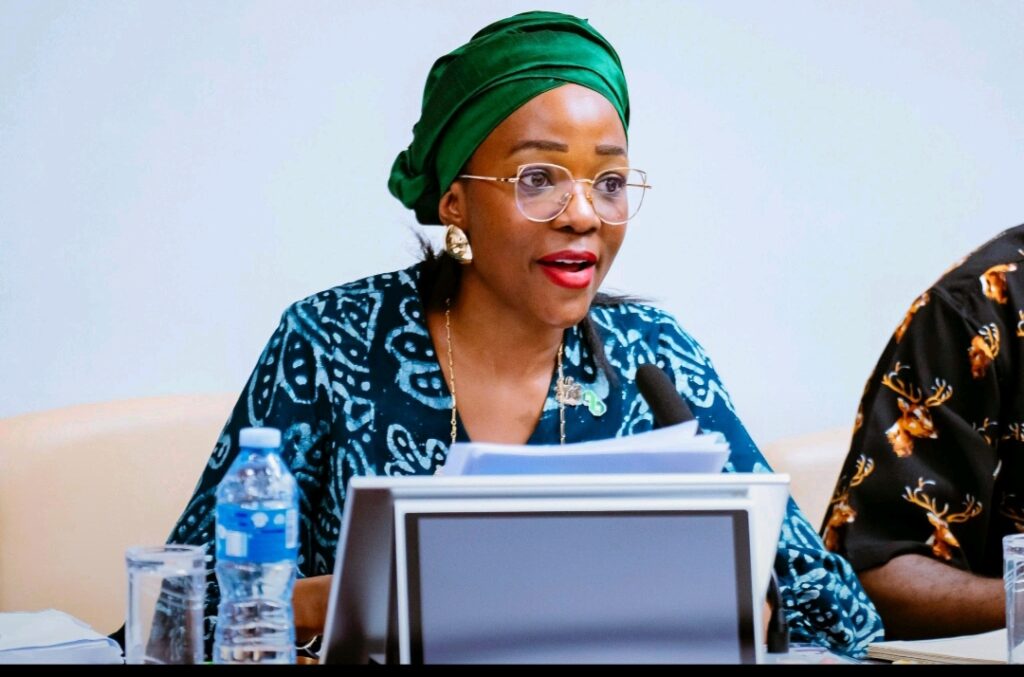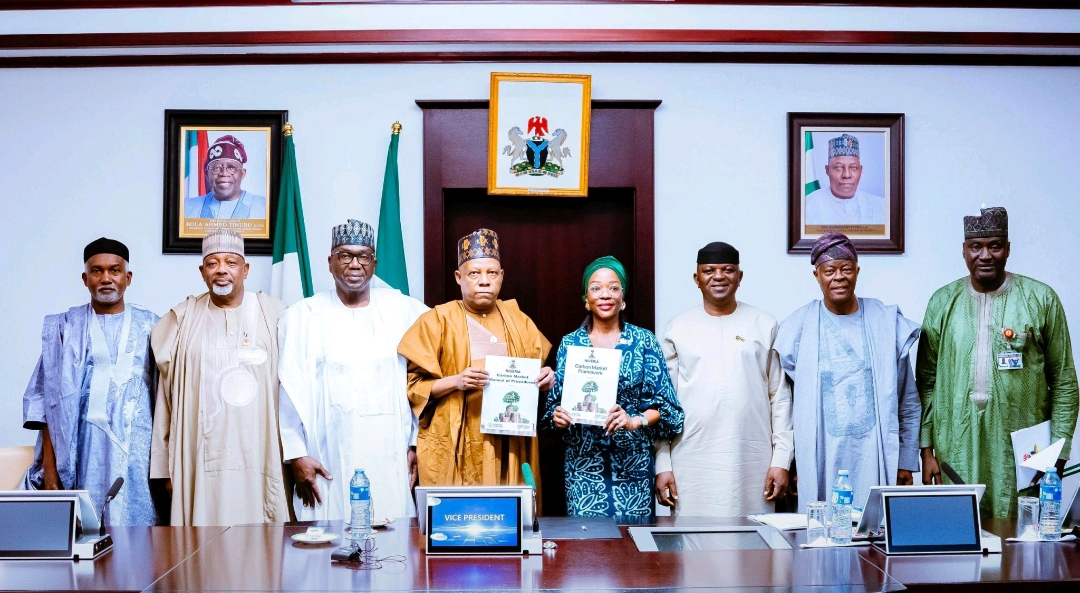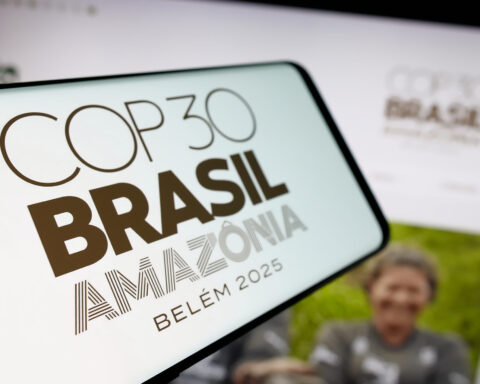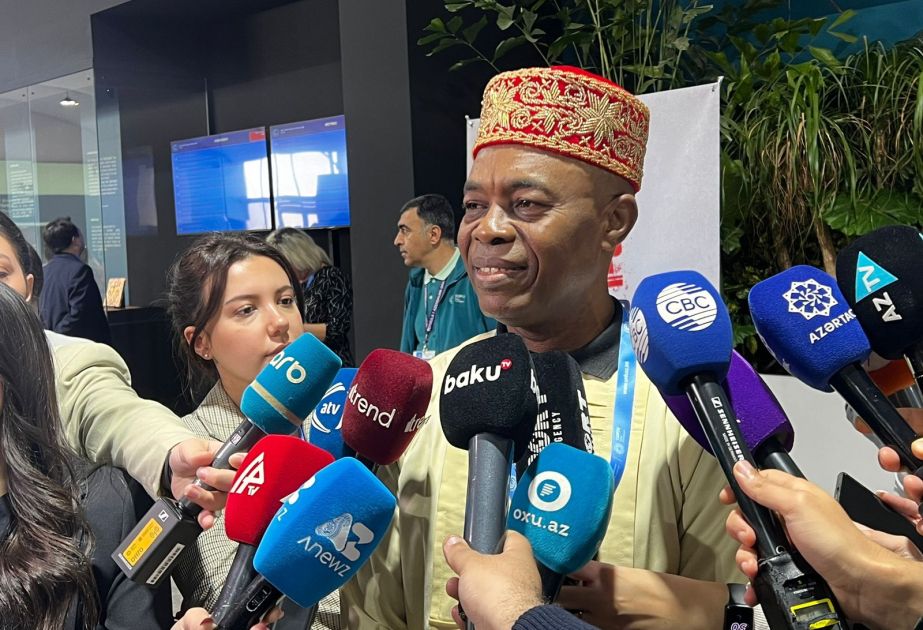President Bola Ahmed Tinubu has approved the adoption of a National Carbon Market Framework (NCMF), the operationalisation of the Climate Change Fund, and the restoration of the National Council on Climate Change (NCCC) to the federal budget line a landmark step expected to unlock $2.5 to $3 billion annually in carbon finance for Nigeria.
The announcement, made by the Senior Special Assistant to the President on Media and Communications Stanley Nkwocha, comes as the country intensifies preparations for the 2025 United Nations Climate Change Conference (COP30), scheduled for November 10–21, 2025, in Belém, Brazil.
According to Nkwocha, the approvals followed a detailed presentation by the Director-General of the NCCC, Mrs. Omotenioye Majekodunmi, during the second meeting of the Council held on Thursday evening at the Presidential Villa, Abuja.
“The goal is to establish and manage Nigeria’s participation in carbon markets, enabling the nation to unlock between $2.5 billion and $3 billion annually in carbon finance over the next decade to help meet climate goals,” Nkwocha stated.
Nigeria Positions for Climate Leadership Ahead of COP30
Representing the President at the meeting, Vice President Kashim Shettima said the decision aligns with the Tinubu administration’s broader commitment to positioning Nigeria as a key player in the global carbon credit and climate finance ecosystem.
He explained that the measures would enable the country to harness opportunities in the global carbon market, finance climate-resilient projects, and drive the energy transition through green investments.
“Nigeria stands ready to take its rightful place as a global leader in climate action, ensuring that our voice and our reality are heard and respected in international negotiations,” Tinubu said.
“We will continue to champion policies that protect our people, strengthen our economy, and position Nigeria as a destination for green investment and innovation.”
The President emphasized that addressing climate change goes beyond environmental protection, noting that it represents a strategic economic opportunity to create jobs, attract investments, and foster innovation across energy, agriculture, and industrial sectors.
Presenting the Council’s progress report, Majekodunmi disclosed that Nigeria is now eligible to access new rounds of international climate finance from multilateral funds a milestone linked to the operationalisation of the Climate Change Fund.

She explained that the Council’s requests focused on three key areas:
Adoption of the National Carbon Market Framework to enable Nigeria generate and trade verified carbon credits domestically and globally.
Operationalisation of the Climate Change Fund to ensure immediate readiness for climate finance mobilisation and utilisation.
Restoration of the NCCC budget line to guarantee financial sustainability and institutional capacity.
The Minister of Finance and Coordinating Minister of the Economy, Wale Edun, endorsed the recommendations, pledging his ministry’s support to ensure seamless coordination of Nigeria’s climate finance agenda.
“Nigeria must secure a strong position within the carbon framework,” Edun said, adding that the ministry would develop a quarterly Climate Finance Tracking Dashboard to monitor progress.
The National Carbon Market Framework (NCMF) provides a structured system for generating, validating, and trading carbon credits a mechanism that rewards countries and corporations for reducing greenhouse gas emissions.
Experts believe the framework could significantly increase Nigeria’s access to climate finance, attract green investments, and advance its Nationally Determined Contributions (NDCs) under the Paris Agreement.
The adoption also comes at a critical time, with COP30 in Brazil expected to shape the next decade of global climate policy.
The summit will mark the anniversaries of the Kyoto Protocol and the Paris Agreement, taking place in the Amazon region, a symbolic site for biodiversity and climate justice.
Tinubu reaffirmed that as Chairman of the National Council on Climate Change, his administration will ensure climate action remains central to Nigeria’s development agenda.
“Our focus is to build resilience, attract green capital, and ensure that no Nigerian community is left behind in the global transition to a low-carbon future,” he said.
By Dare Akogun








